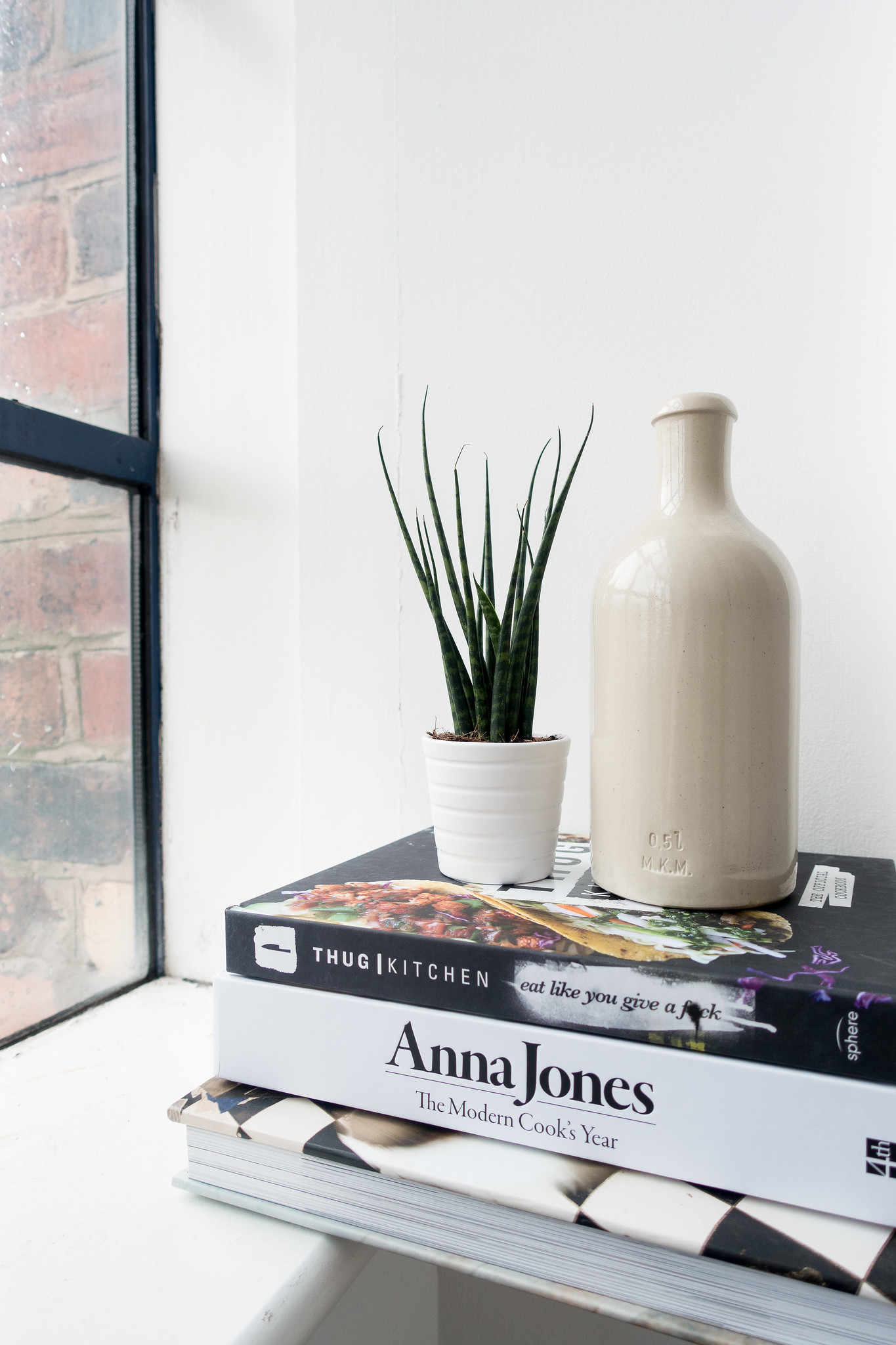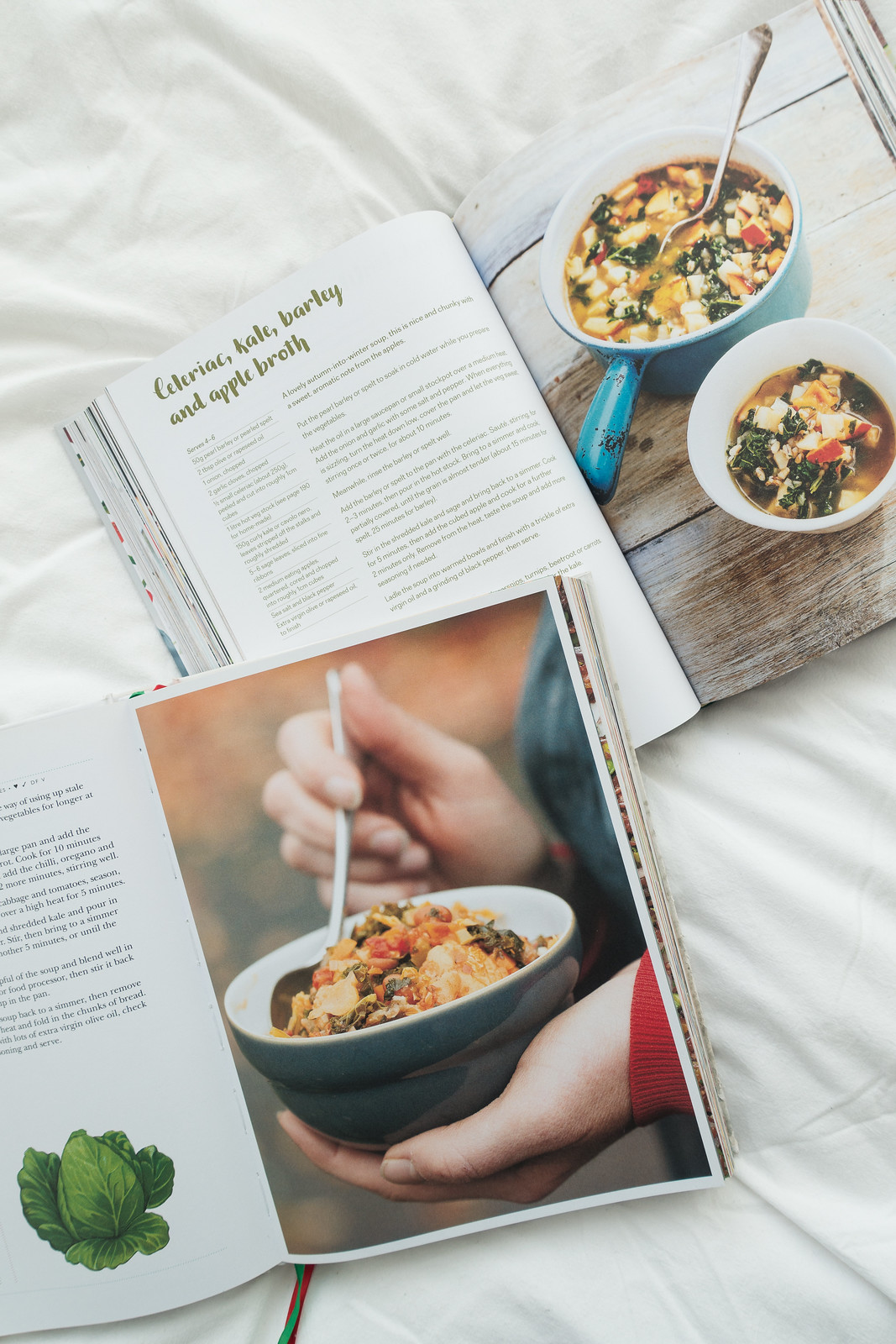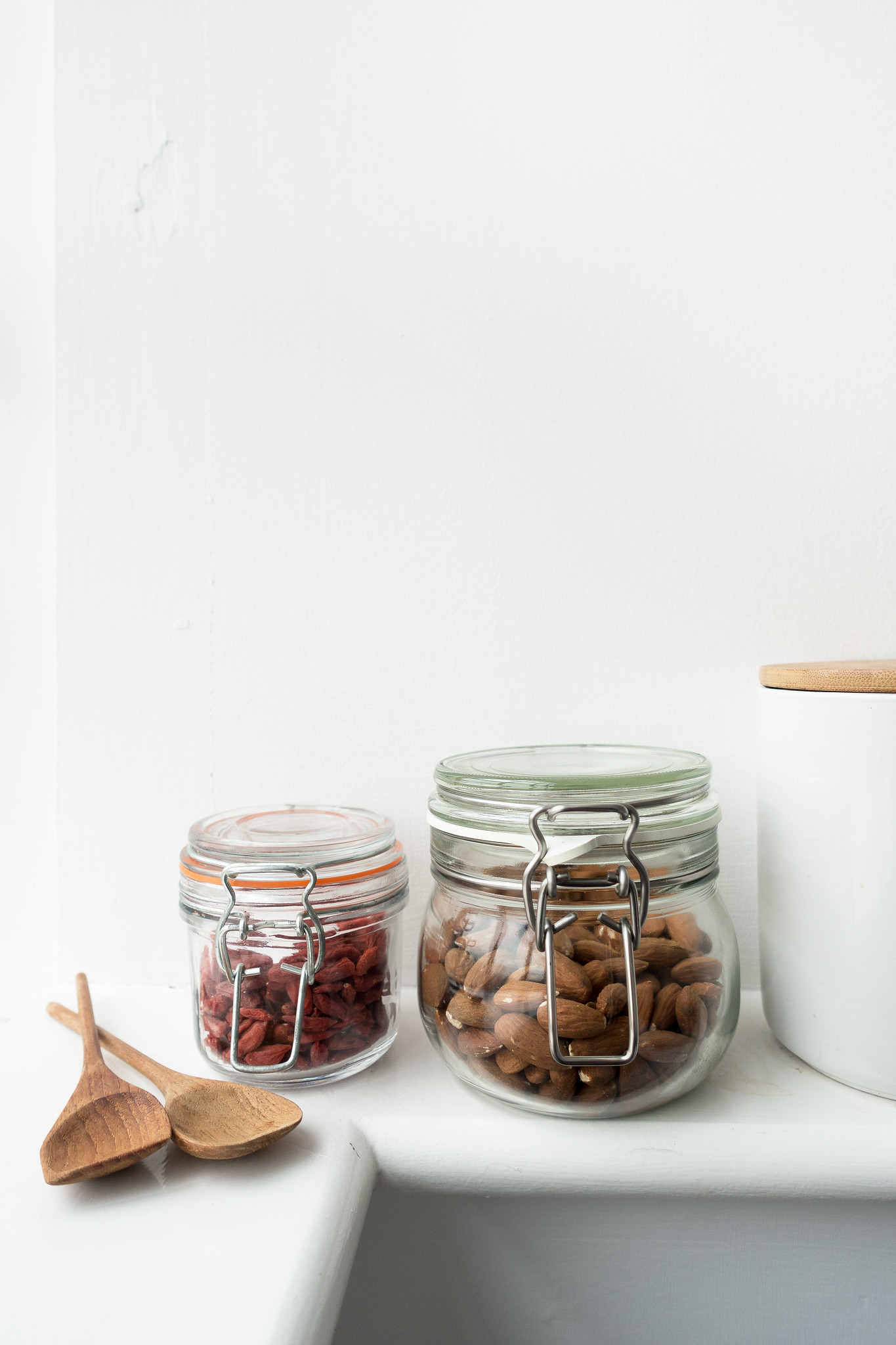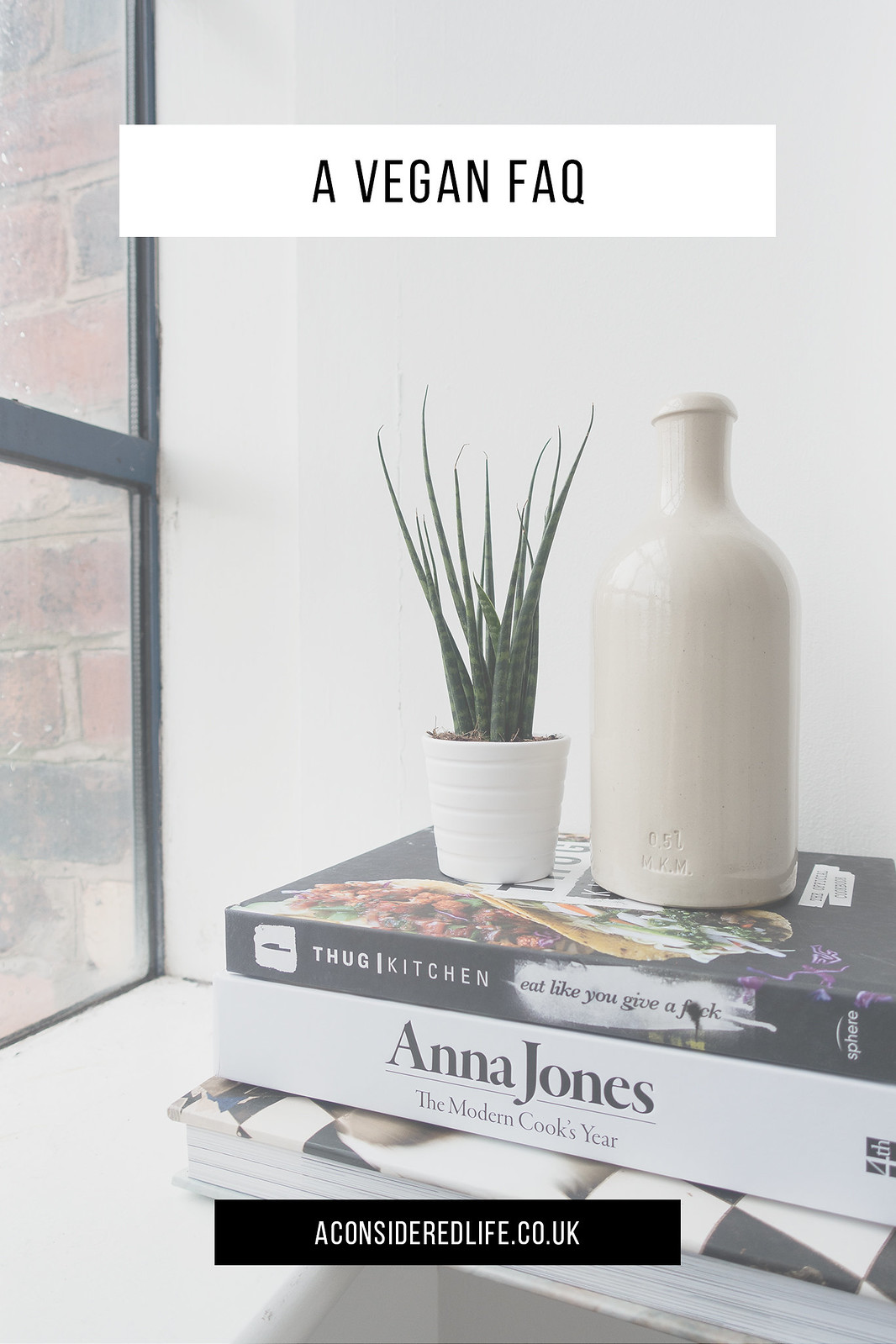
There are a common set of questions that all vegans have been asked at one point or another and you're likely to be asked when transitioning to veganism. People are curious and interested, they want to discuss the what, how, and why of the lifestyle, and challenge your reasons for making the switch. So if you're the one 'going vegan' or you're simply curious about the lifestyle; here are the most frequently asked questions about veganism and their answers (including sources).
“What do you eat?”
Whole grains, rice, bread, pasta, cereal, fruit, vegetables, legumes, beans, nuts, and seeds. There's also a whole heap of processed foods like biscuits, chocolate, sweets, ice cream, burgers, sausages, pies, condiments, and also things like non-dairy milks and cheeses, tofu, tempeh, and seitan. Lots of foods are "accidentally vegan" (you've almost certainly eaten a few vegan meals or snacks without realising) and there are vegan versions of pretty much everything you can imagine. Here's a grocery list with lots more information and a basic list of snacks and quick meals.
“Where do you get your protein?”
Beans, lentils, chickpeas, tofu, nuts, and non-dairy milks and yogurt. Protein should make up approximately 10% of your daily calories but protein deficiency is so rare it’s almost a myth. In fact, we’re actually eating too much of it. The National Health and Nutrition Examination Survey found the average American is eating twice the daily recommended intake. Protein deficiency isn’t something the majority of adults need to worry about.
“Where do you get your calcium?”
Dark leafy greens, pulses, sesame seeds and tahini, bread, dried fruit, fortified drinks, and calcium-set tofu. We need between 1000 and 1200 milligrams of calcium per day and no matter what your diet is it's possible to be deficient if you're not eating a varied range of foods. It's a myth that dairy is the best way to get calcium; you can get all the calcium you need from plant-based sources, which are often better for you than dairy.
“Isn’t being vegan difficult?”
No one can deny that making changes to your lifestyle can be difficult especially if it involves explaining those changes to family and friends, finding new places to eat and learning new ways to cook. How difficult you find it will be a personal experience depending on how much your life involves eating, using, or wearing animals and if your family and friends are understanding of those changes. If you have a meat or dairy heavy diet, you might find the learning curve quite steep and explaining to people why you’ve made the switch can be tricky. But there are plenty of resources to help make the learning process and transition as smooth as possible.
“Isn’t being vegan expensive?”
Unless you live in a food desert then getting access to a varied range of food is very easy. The poorest countries in the world are vegan by default because plant-based foods are the cheapest. Processed/Pre-packaged foods, meat, dairy, eggs, and specialist vegan foods are the most expensive items to buy. However, a vegan whole food plant based diet made up of staples such as whole grains, beans, legumes, and vegetables, is the cheapest and most nutritious diet for any budget. Non-food related vegan products can be both cheap and expensive just like their non-vegan counterparts. When you're shopping, it's up to you to make sensible purchases based on your budget.

“If being vegan is healthy, why do you need to take supplements?”
B12 is the only supplement all vegans should take but arguably so should meat-eaters, here’s why. B12 is made by anaerobic micro-organisms naturally found in edible algae, purple seaweed, varieties of mushrooms, some foods made with certain fermentation processes, and animal foods. We clean all the food we eat so any B12-containing bacteria on its surface is washed off. The only reason vegans need to supplement with fortified foods or B12 supplements is because we don’t eat animals which have been eating dirt or faeces, or given B12 supplements. Just because you eat meat doesn’t mean you’re safe from B12 deficiency.
“If you were stuck on a desert island, would you kill and eat an animal?”
Most people would do a lot of things on a desert island that they wouldn’t do in daily life. Here's a list of real occurrences of castaways (spoiler alert: it doesn't happen often) and if you're still worried about it, here's a guide to surviving on a desert island.
“If vegans hate meat so much, why do they make fake meat alternatives?”
Not all vegans dislike the taste of meat they just hate the fact that an animal has to die to get it. A better question would be: if we can recreate the exact same or a similar product to meat, dairy, and eggs without the avoidable cruelty involved, why wouldn't you choose that option? Having plant-based alternatives that replicate the texture and taste of meat is a great way to avoid participating in the killing of animals without sacrificing enjoyment. Switching to a “fake meat” alternative is also a great way to transition into a new plant-based diet if you’re new to veganism.
“Why do some vegans wear leather/wool/silk, isn't that hypocritical?”
Vegans won't buy new leather, wool, silk or buy products tested on or made using animal products but they will often continue to use the things they purchased (or were given) before they went vegan. This is because environmental awareness is a huge part of veganism for a lot of people and waste, such as throwing away perfectly good clothing or products, simply isn't acceptable. Throwing them away only adds to the 15 million tons of used textile waste.
Many vegans will also buy secondhand clothing, which may be made using leather, wool, or silk even after they have become vegan. This is because secondhand shopping is pretty much the only environmentally friendly way to shop for clothing. There are also huge issues with the way "vegan leather" (made from plastic) is produced resulting in environmental damage, which many vegans feel uncomfortable with buying.
This is a point of contention within veganism and neither choice, to wear or not to wear pre-owned clothing, is right or wrong.

“If everyone went vegan, what would happen to the animals?”
If everyone switched to veganism overnight there would be a major issue of finding homes for hundreds of millions of animals. Realistically speaking, that's not going to happen; the whole world is not going to go vegan overnight. It would be a gradual process that would see a slow reduction in both demand and number of animals farmed, and an increase in demand and production of plant crops and products. Cows, pigs, and chickens are domesticated animals and their biodiversity is no more important than dogs or cats. When everyone goes vegan there will likely be hobbyists who breed these animals for the fun of it just like pet owners do.
Here are five things that would happen if the world went vegan and guess what, we wouldn’t be overrun by chickens and cows wouldn’t go extinct.
Less health problems
Veganism would prevent 8 million deaths per year. Many health problems can be alleviated, reversed, or irradiated by switching to a plant-based diet including heart disease, high blood pressure, type 2 diabetes, and various types of cancer. If everyone went vegan, we would see a global mortality reduction of 6-10%
World hunger could end
40 million tons of food is required to end world hunger and yet we already produced 20 times that amount but we feed it to livestock instead of people.
A cleaner environment
Global veganism would free up 2.7 billion hectares of land which is currently being used for cattle grazing plus an additional 100 million hectares of land currently being used to grow crops for livestock. If everyone stopped eating meat the world's food-related emissions would drop by 70% by 2050. The economic savings would be around £440 billion.
Antibiotic resistance would be reduced
Animals farmed for food are fed antibiotics to promote faster growth and to compensate for unsanitary conditions. These antibiotics fed to the animals, which you then eat, cause “superbugs” to become resistant to treatment. Antibiotic resistance makes infections and illnesses harder to treat, which results in a strain on the health care system, causing longer hospitals stays and expensive treatments.
56 billion animals wouldn’t die
That’s how many farmed animals (not including fish and other sea creatures) are killed every year by humans. By going vegan you can help them avoid a lifetime of suffering.
